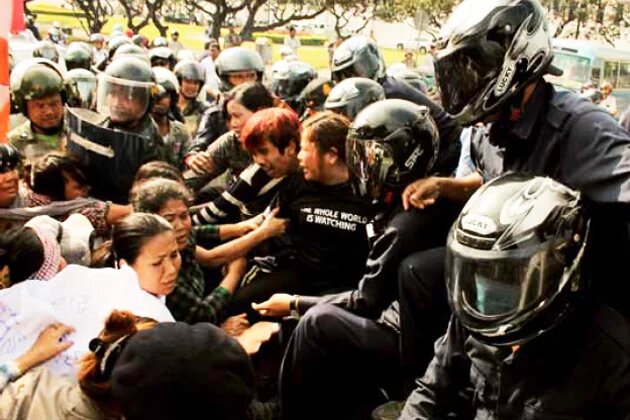
A country still transitioning to democracy, Cambodia needs a reliable police force to uphold the rule of law and instill confidence in the governance system among the country’s people. To this end, significant donor and government resources have been spent for initiatives creating new institutional rules and providing police training to boost capacity. In reality however, the police force is still perceived as one of the country’s most corrupt institutions. Moreover, acts of police brutality against civilians continue to occur, demonstrated during recent land eviction protests and demonstrations following the release of the highly contested results of the 28 July 2013 national election. Consequently, this paper seeks to discredit the fictitious view that new institutional rules and police training will necessarily lead to an adequate police force.
Employing a critical feminist perspective, this paper aims to deconstruct the individual and institutional behaviour of Cambodia’s faltering police force. It will argue that police behaviour is rooted in a complex set of gendered power relations whereby police officers are feminised due to the tight power structures dictated down the public sector by the government and ruling political party. Hence in order to reestablish their power, dominance and masculinity, acts of violence and illicit bribes are routinely used against citizens who are feminised through the acts.
On an institutional level, the tough, constructed, masculine identity of the police force is reinforced, contrasted to the weak, submissive, feminine citizenry which is disempowered through the systematic injustices it faces in its interactions with the police. From this understanding, this paper will call for a more holistic reform approach, taking account of the broader set of social relations which inform police behaviour.
For full reading of this article, Please download the PDF file at the right top sidebar.